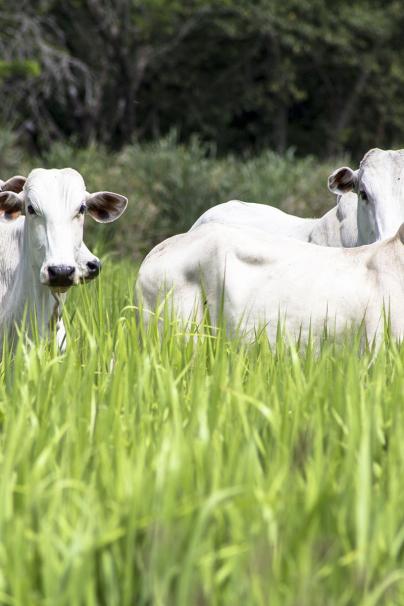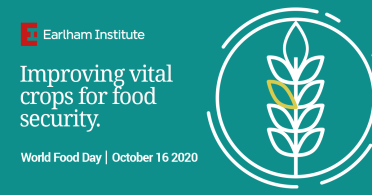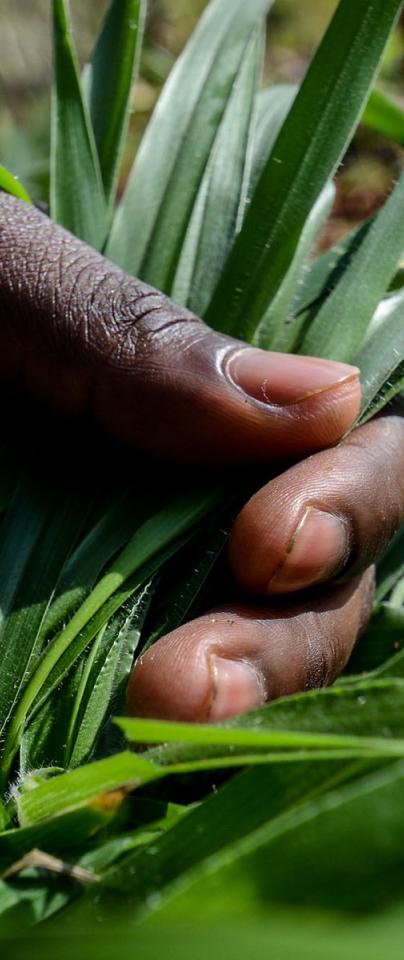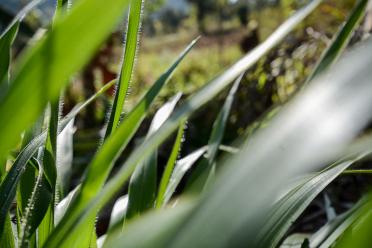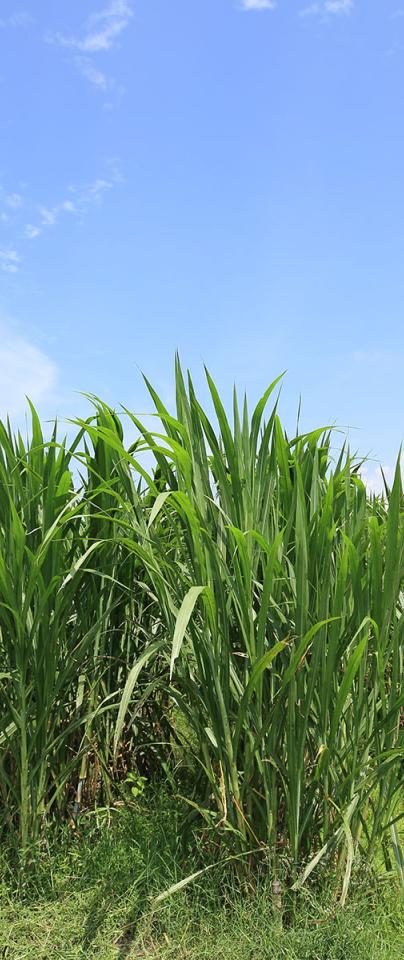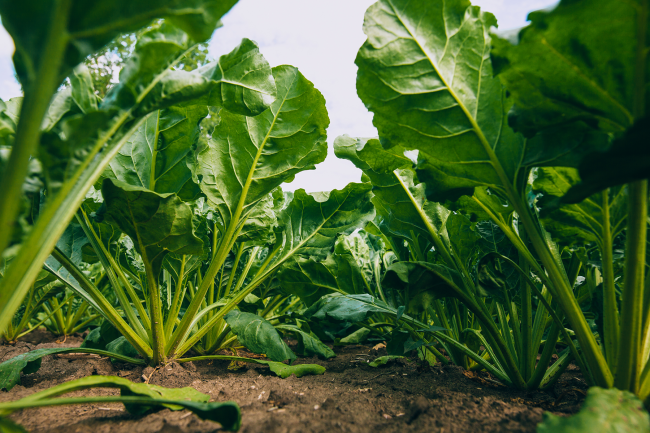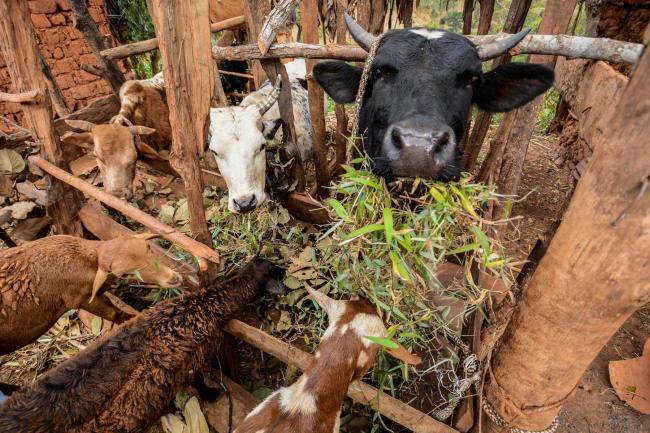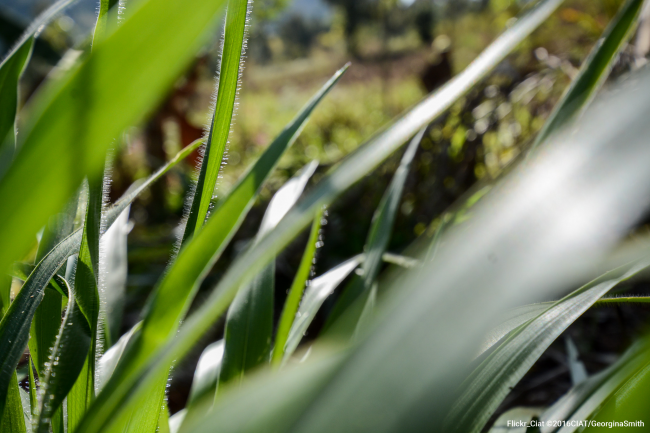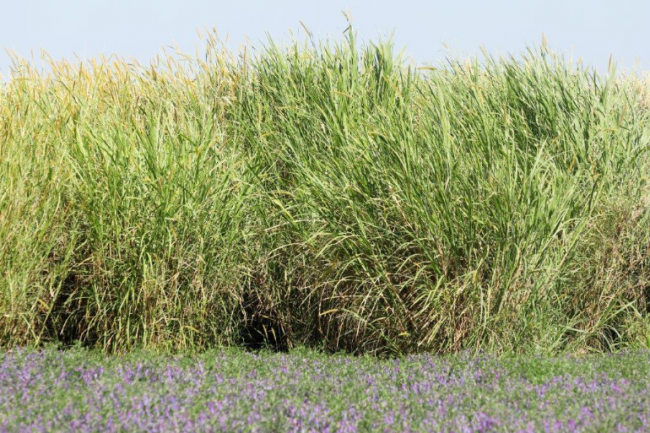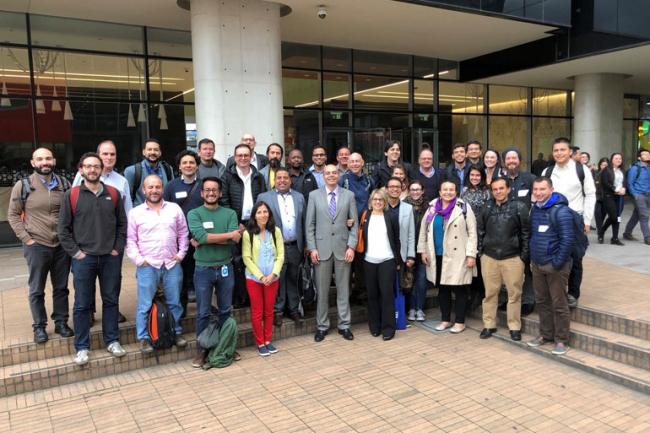When it comes to how food security can be improved, it takes more than just calories. For many of the world’s poorest people, the nutrition and income provided by livestock products are absolutely essential, especially milk. But the forage and fodder crops which subsistence farmers need to sustain healthy herds stand to suffer some of the most extreme effects of climate change.
“It might not seem so obvious,” says De Vega, “but climate change will really affect the tropics the most. That’s where you are likely to see the worst extremes of weather, and that will have a huge impact on food security.”
Increasing extremes of weather - unpredictable, long droughts interspersed with periods of above-average rainfall - are likely to wreak havoc on food production. That is, unless we do something about it.
“We need to tailor tropical crops to the demands of each local environment,” says De Vega, whose work spans several regions throughout the continents of Asia, Africa and South America. “That means breeding resilience to shocks, so that a night of freezing weather in the middle of June, or a sudden drought, doesn’t ruin the whole field of grasses for your cows.
“It’s an important step toward alleviating rural poverty and food insecurity in developing countries.”
Much of the major international funding into crop research has gone into big staples such as wheat and rice, for which genes and their functions are being mapped in greater detail year on year. This helps breeders quickly produce more resilient varieties. Yet many crops, despite their importance for food security, cannot boast such research and development.
The lack of time and resource invested into research on them is the reason they are sometimes called ‘orphan crops’.
“It’s a bit like how there is this huge lack of funding for malaria, which kills millions each year, versus something like treatments for hair loss,” says De Vega. “Malaria is largely a disease of the developing world. It affects the poor. Those people have been neglected. It’s a similar story with orphan crops.”
